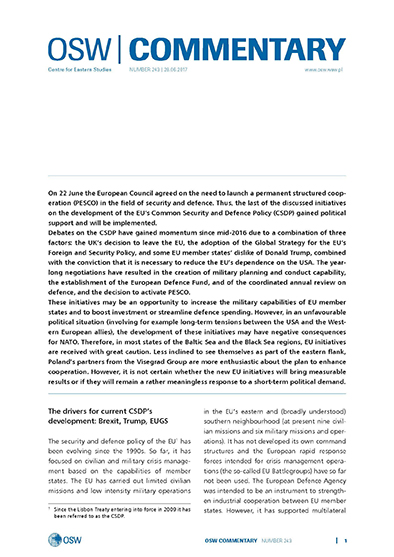Zakarpattia – together, but separated
Zakarpattia – together, but separated
Author(s): Piotr Żochowski, Tadeusz Iwański
Subject(s): Governance, Public Administration, Public Law, Developing nations, Geopolitics
Published by: OSW Ośrodek Studiów Wschodnich im. Marka Karpia
Keywords: Zakarpattia; Ukraine
Summary/Abstract: Ukraine’s ongoing conflict with Russia has diverted the central government’s attention away from the deterioration of the security situation in regions which are not threatened by direct aggression from Russia. Zakarpattia is one of these. It is one of the poorest and most ethnically diverse regions of Ukraine and also its westernmost region, bordering Slovakia, Hungary, Romania and Poland. Kyiv neglected to launch measures to weaken the position of the region’s unquestioned leader, Viktor Baloha and his family, who have been in de facto control of Zakarpattia for years now. Moreover, it seems that, after the Euromaidan, Kyiv decided to give the Baloha family a ‘free hand’ in the region in exchange for maintaining stability. This further strengthened their position. As a consequence, no measures were taken to limit negative phenomena present in the region such as smuggling and organised crime. It was only the armed confrontation between the police and representatives of Right Sector in July 2015 in Mukacheve that strikingly revealed the extent of these problems. This was a criminal incident and a blot on the image of Kyiv which assured the public that the reform of the public security system was making rapid progress. Furthermore, it had far-reaching political consequences—it forced the government in Kyiv to attempt to regain control of the region and to weaken Baloha’s influence, as well as Baloha himself to carry out actions focused on maintaining the status quo.
Series: OSW Commentary
- Page Count: 10
- Publication Year: 2015
- Language: English
- Content File-PDF

